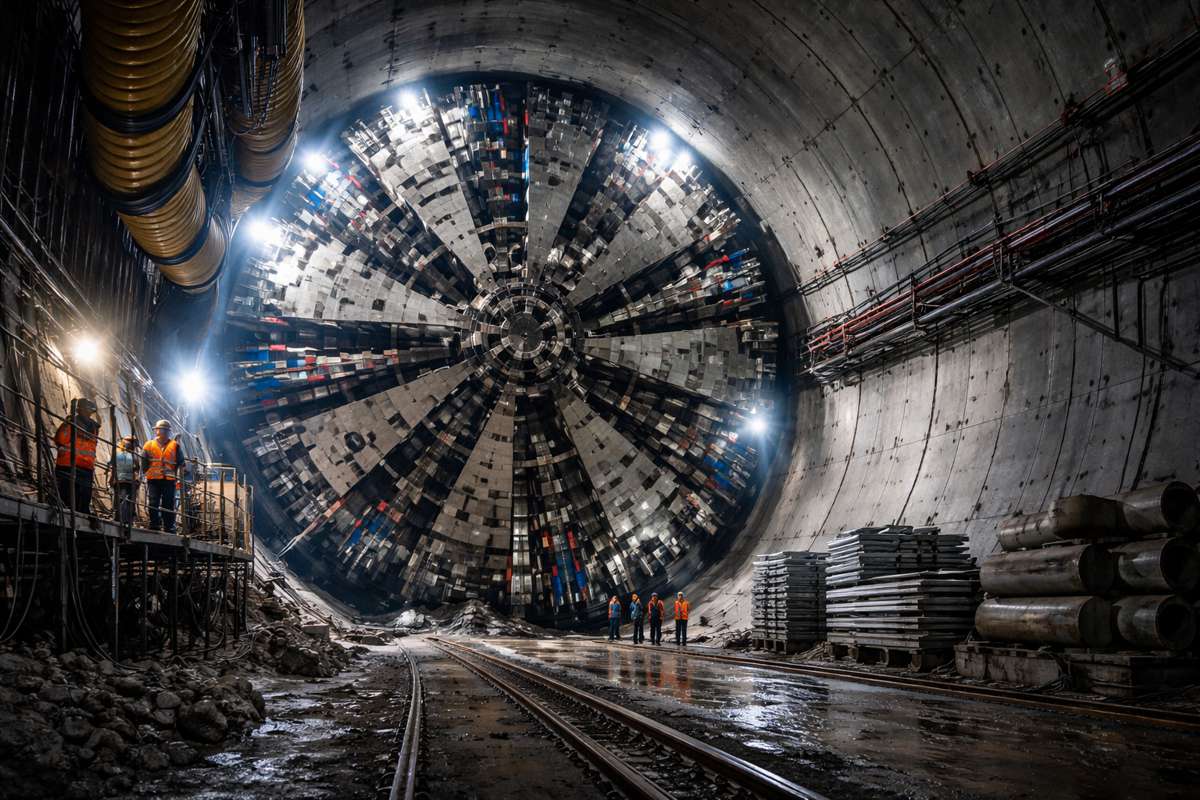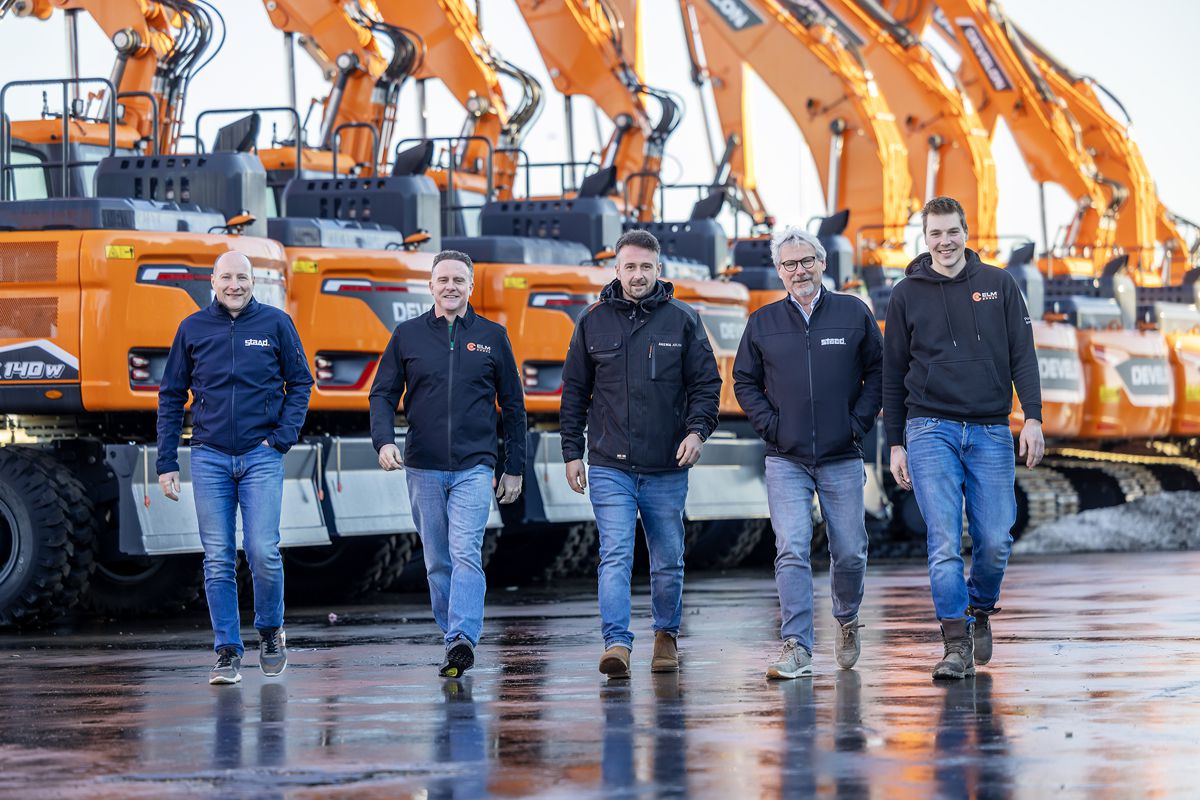Volvo moves the Earth for the Sirius Group
From their heyday in the 1970s, motor scrapers have slowly disappeared from the UK to be replaced by ADTs and excavators. The once prevalent behemoths were on every opencast and road job and were seen as the most cost efficient and fastest way of moving muck from A to B.
While the majority of motor scrapers have until recently been confined to power station coal stockpiles, there are still a handful of older examples operating on smaller projects. What has been changing is the rise again in towed boxes, mainly behind crawler tractors and in some cases, pulled by large agricultural tractors. Whilst rumours abound of large scrapers making a comeback for the likes of HS2 where there are vast quantities of material to be moved, these machines still require the most important part of any outfit, an experienced operator. For motor scrapers, these are few and far between.
One forward-thinking company which has looked at their order book and realised there is a requirement for something other than the now traditional excavator/ADT combination, is the Sirius Group. Headquartered in Leeds and with offices across the UK, the Sirius Group are a multi-disciplined organisation that undertake a wide variety of consultancy, geotechnical, planning and remediation operations, as well as undertaking the development of both brown and green field sites.
It was the increase in projects on Government-released greenfield sites that sparked Plant Director, Stuart Kirk, into looking for alternative ways of moving material. “I come from the age of scraper operations and spent many years working with one of the biggest names in scrapers, Neil Becher. I know first-hand that scrapers can be the most efficient and fastest way of moving muck and wanted to look at something similar to this that could help our company. We have used subbies with towed boxes in the past and they have done a great job but, they’re only able to one job – move muck. We wanted to take that solution and better it.”
One potential option was to bring scrapers to the fleet, something the company has used with sub-contractors in the past. “We have used tractors and boxes and elevating scrapers before now,” says Stuart, “but we wanted to bring this cost effective method of earthmoving up to date.”
Weeks of homework and searching the internet led Stuart to the door of Canadian manufacturers K-Tec. Based in Manitoba state in Canada, K-Tec has been producing scraper boxes and land levellers for almost two decades and offer a range of seven different scraper models and seven different land levellers, all manufactured from high grade Hardox steel.
“Once I saw what the K-Tec machine was capable of, it was a ‘done deal’ as far as I was concerned! But I had yet to explain my decision to the Board and then convince them it was the right way to go – fortunately, they accepted my proposal and we made contact with K-Tec’s team.”
From the initial thoughts of acquiring the K-Tec scrapers, Stuart knew he wanted to use them behind a converted ADT which Sirius have plenty of experience in operating. “We have used Volvo ADTs for a number of years and they are the best out there. The thinking of using a converted truck was that, should the scraper work drop off or conditions become too bad to operate with the ADT front-end, we could put the bodies back on while still under a full shift,” says Stuart. This versatility boosted the confidence in their purchase and a pair of nearly-new Volvo A30G trucks were taken off frontline hauling duties, ready to be converted by the K-Tec team.
The choice of Volvo ADT as the basis for this combination was a relatively simple one. “They are by far the best ADT on the market. They’re built well, are reliable and in the A30G, we have a fuel-efficient tractor capable of coping with the K-Tec box and still give us good fuel returns. What we were really looking for is a modern combination capable of moving material quickly, economically and in large amounts whilst still keeping to our company ethos of supplying environmentally friendly solutions.”
With no dealer in the UK, the team from Canada were assisted by SMT personnel in the conversion that was a straightforward affair once the body and hoist cylinders were removed.
“We’ve been refining the set-up since it first went into operation. We believe we now operate one of the quickest, most efficient, cleanest and economical methods of muck-shifting in Europe.”
With additional wings over the rear axles added and the fifth-wheel bolted into position, the relevant hydraulic supplies were lengthened to support the hydraulic system on the box, along with an excavator-style joystick replacing the dump lever inside the cab. The multi-function joystick allows control over the raising and lowering of the bowl, opening and closing of the apron as well as the actuation of the ejector plate.
With the scraper and ADT combination set up, the next task was to install a Trimble 3D GCS9000 grade-control system. Already operating 20 Trimble units in dozers and more recently excavators, the company has first-hand knowledge and experience of how a 3D GPS-system can benefit them on a project.
“We wouldn’t look at a job without it being undertaken on GPS these days,” Stuart comments. “The accuracy and speed at which we can undertake a project is amazing. We no longer move too much or too little material and not having a surveyor on the ground makes the job so much safer.”
The Trimble system was installed by Sitech who Stuart cannot praise highly enough for their assistance with the project. “The system is just first-class and Sitech do a good job on the install.” The addition of the machine control system now allows the scraper to be set into automatic mode to remove just the required amount of material at one time and dump it in an accurate layer where needed. “For a cut-and-fill project, it is simply unbeatable.”
Power for the A30G comes from a tried-and-tested D11E diesel delivering 320hp at 2,100rpm and is seen as the ideal partner for the K-Tec 1228 box with a 21.4 cubic metre capacity. Apart from the removal of the skip and the addition of the gooseneck coupling, there were very little changes made to the truck externally.
Inside the cab there have been numerous additions along with the joystick control lever. To the operator’s right hand side are a trio of screens. The lower of these is the control screen for the scraper box and allows the operator to manually set parameters for the box.
The centre screen contains the brains for the Trimble system and shows the operator a real-time view of exactly where and what the outfit is doing. The top screen is linked to a colour wide-angle rear view camera mounted on the chassis and shows the apron of the scraper, whilst an identical screen to the left hand side of the cab shows an in-bowl view.
The placement of the screens and the excellent large mirrors on the Volvo mean the operator very rarely needs to take a look over their shoulder at what is going on behind them.
Operator of one of the outfits, Ian Hagler, praises the combination for its performance: “We’ve run it on top soils and hard, compacted, former colliery overburden and it performs very well. You have to be very careful and not be too greedy as it will make the wheels spin but with a shove from the blade, you soon get moving again. I was a bit wary about operating the combination at first but after a couple of days, it became second nature and is very easy and comfortable to operate.”
Stuart is extremely pleased with the new combination’s performance and is keen to add that the production figures are far exceeding his and the company’s expectations. Whilst wanting to keep the exact figures close to his chest, he did say that to move the equivalent amount of material as quick as these combinations do, he would require at least a trio of 35-tonne dump trucks, a 45-tonne excavator and a dozer on the fill area. That’s five lots of fuel, five operators and five machines compared to the three they are currently using.
Stuart sums up, “The trucks do use a little more fuel than they normally would but they are carrying over 40 tonnes at a time. This equates to over a 40% increase in material moved every time the truck moves. We couldn’t be more pleased with this result.”
































